Psychology > QUESTIONS & ANSWERS > WGU D094/ Educational Psychology and Development of Children and Adolescents Questions and Answers A (All)
WGU D094/ Educational Psychology and Development of Children and Adolescents Questions and Answers Already Graded A
Document Content and Description Below
WGU D094/ Educational Psychology and Development of Children and Adolescents Questions and Answers Already Graded A Maslow's Hierarchy of Needs ✔✔ Popular motivational theory proposed by Abrah... am Maslow in 1943. Maslow's Hierarchy of Needs Main Idea ✔✔ Individuals must satisfy a basic series of needs before they can reach their potential. Maslow's Deficiency Needs ✔✔ Physiological, Safety, Love and Belonging, and Esteem Maslow's Growth Needs ✔✔ Cognitive, Aesthetic, Self-Actualization, Transcendence Maslow's Physiological Need ✔✔ Biological needs for survival, food, water, shelter Maslow's Safety Need ✔✔ Protection from the elements, law and order, financial security, and freedom from fear. Maslow's Love and Belonging Need ✔✔ Need for interpersonal relationships - friendships, intimacy, being part of a group. Maslow's Esteem Need ✔✔ Self-respect, respect from others, achievement, status, and prestige. Maslow's Cognitive Need ✔✔ Curiosity, knowledge, and intellectual exploration Maslow's Aesthetic Need ✔✔ Need focuses on the search for and expression of beauty and balance. Maslow's Self-Actualization Need ✔✔ Personal growth and fulfillment and the realization of one's personal potential as a human being. Maslow's Transcendence Need ✔✔ Meeting spiritual needs or helping others achieve self-actualization. Arnold Gesell ✔✔ First theorist to observe and document stages of physical development. Gesell's Maturational Theory ✔✔ Child's growth & development are influenced by both their environment and genes in sequential order Infancy ✔✔ The stage of development that begins at birth and lasts between 18 and 24 months. Dozens of motor skills are added. Early Childhood ✔✔ The stage of development from 2 - 6 years old. Improvements occur in both fine and gross motor skills. Middle Childhood ✔✔ The stage of development from 6 - 10 years old. Slow but steady gains in weight and height. Adolescence ✔✔ The stage of development from 10 - 18 years old. Weight and height increase rapidly and puberty begins. Jean Piaget ✔✔ Swiss psychologist known for his Theory of Cognitive Development. Piaget's Theory of Cognitive Development ✔✔ Theory that suggests children move through four different stages of development. Sensorimotor, Preoperational, Concrete Operational, and Formal Operational. Sensorimotor Stage ✔✔ Stage of development from birth to 2 years. Infants and toddlers acquire knowledge through sensory experiences and manipulating objects. Object Permanence ✔✔ The understanding that objects continue to exist even when they cannot be seen. Major development of sensorimotor stage. Preoperational Stage ✔✔ Stage of development from 2 to 7 years. Kids learn through pretend play. Egocentric and struggle to see others perspective. Concrete Operational Stage ✔✔ Stage of development from 7 to 11 years. Logical thought begins, and they understand the idea of conservation. Formal Operational Stage ✔✔ Stage of development for 12 years and up. Abstract thought begins. Higher order thinking and ability to systematically plan for future. Schema ✔✔ Categories of knowledge that help us to interpret and understand the world. An organized pattern of behavior or thought. Assimilation ✔✔ Process of using or transforming the environment so that it can be placed in preexisting cognitive structures (schema). Accomodation ✔✔ Process of changing cognitive structures (schema) in order to accept something from the environment. Can also develop new schemas. Equilibration ✔✔ The attempt to strike a balance between assimilation and accommodation. The tendency to organize schemas. Vygotsky's Theory of Cognitive Development ✔✔ Lev Vygotsky's sociocultural theory that emphasized the important role of social interactions in the development of children's cognition. Zone of Proximal Development (ZPD) ✔✔ The place where the most sensitive instruction or guidance should be given. It is the link between what we can do and what we can't do. More Knowledgeable Other (MKO) ✔✔ Someone who has a better understanding or a higher ability level than the learner. Vygotsky's Social Approach to Language Development ✔✔ Language develops through social interactions. Bandura's Social Learning Theory ✔✔ Learning occurs through observation and modeling. 3 Types of Modeling ✔✔ Live models, direct instruction, and symbolic instruction. Carol Gilligan's Theory of Gender and Moral Development ✔✔ Based her work on Kohlberg's theories, but states gender might influence ethical development. [Show More]
Last updated: 1 year ago
Preview 1 out of 18 pages
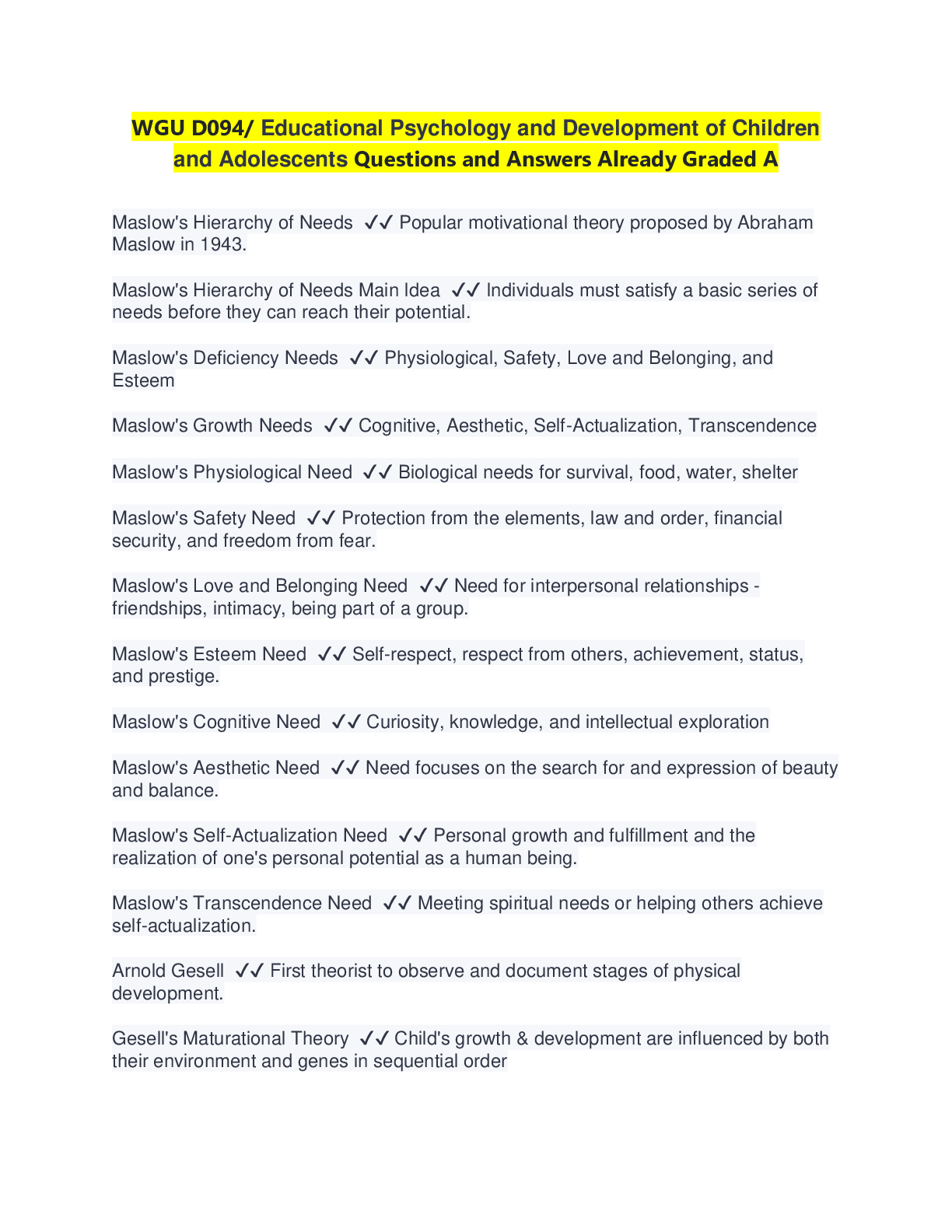
Buy this document to get the full access instantly
Instant Download Access after purchase
Add to cartInstant download
We Accept:

Reviews( 0 )
$9.00
Document information
Connected school, study & course
About the document
Uploaded On
Jan 13, 2023
Number of pages
18
Written in
Additional information
This document has been written for:
Uploaded
Jan 13, 2023
Downloads
0
Views
111
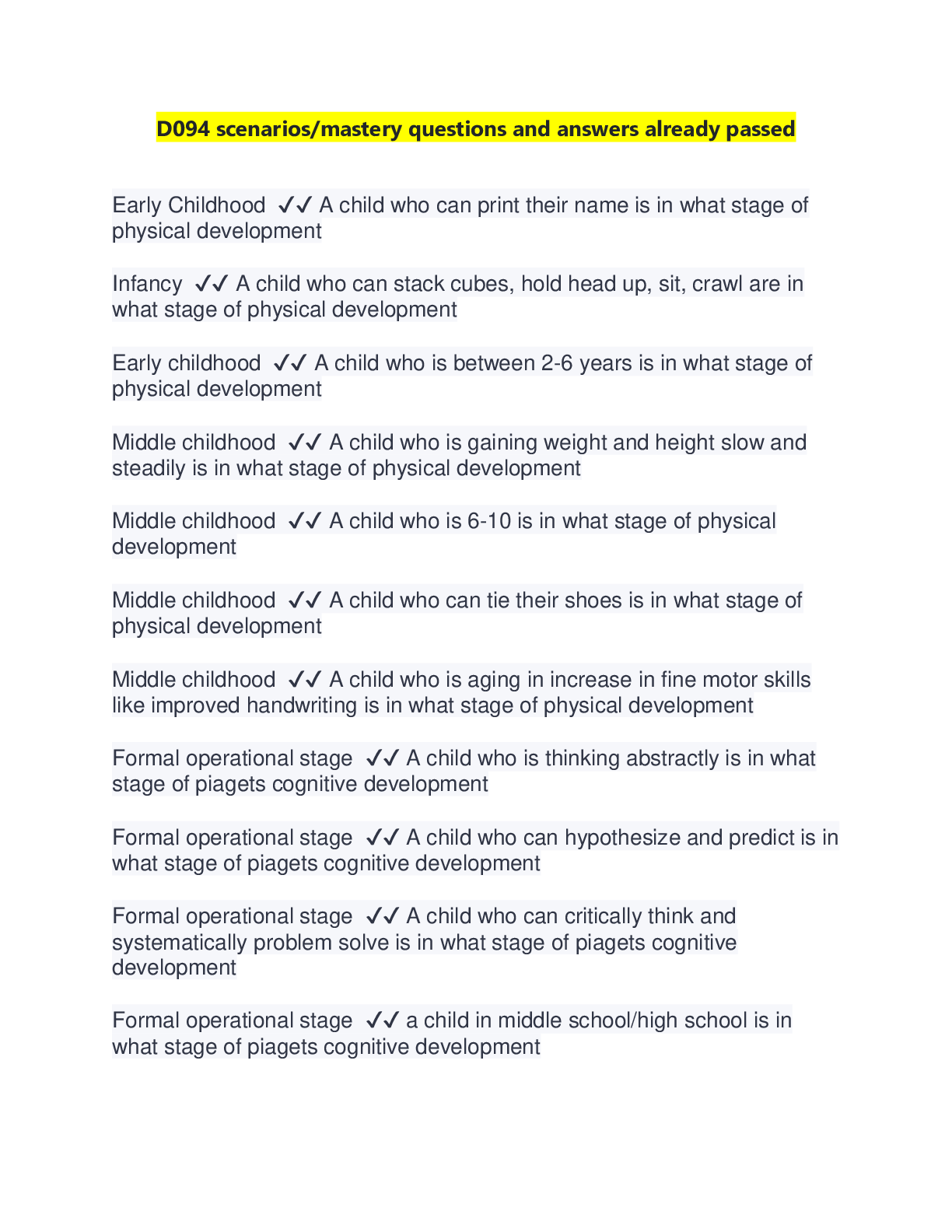

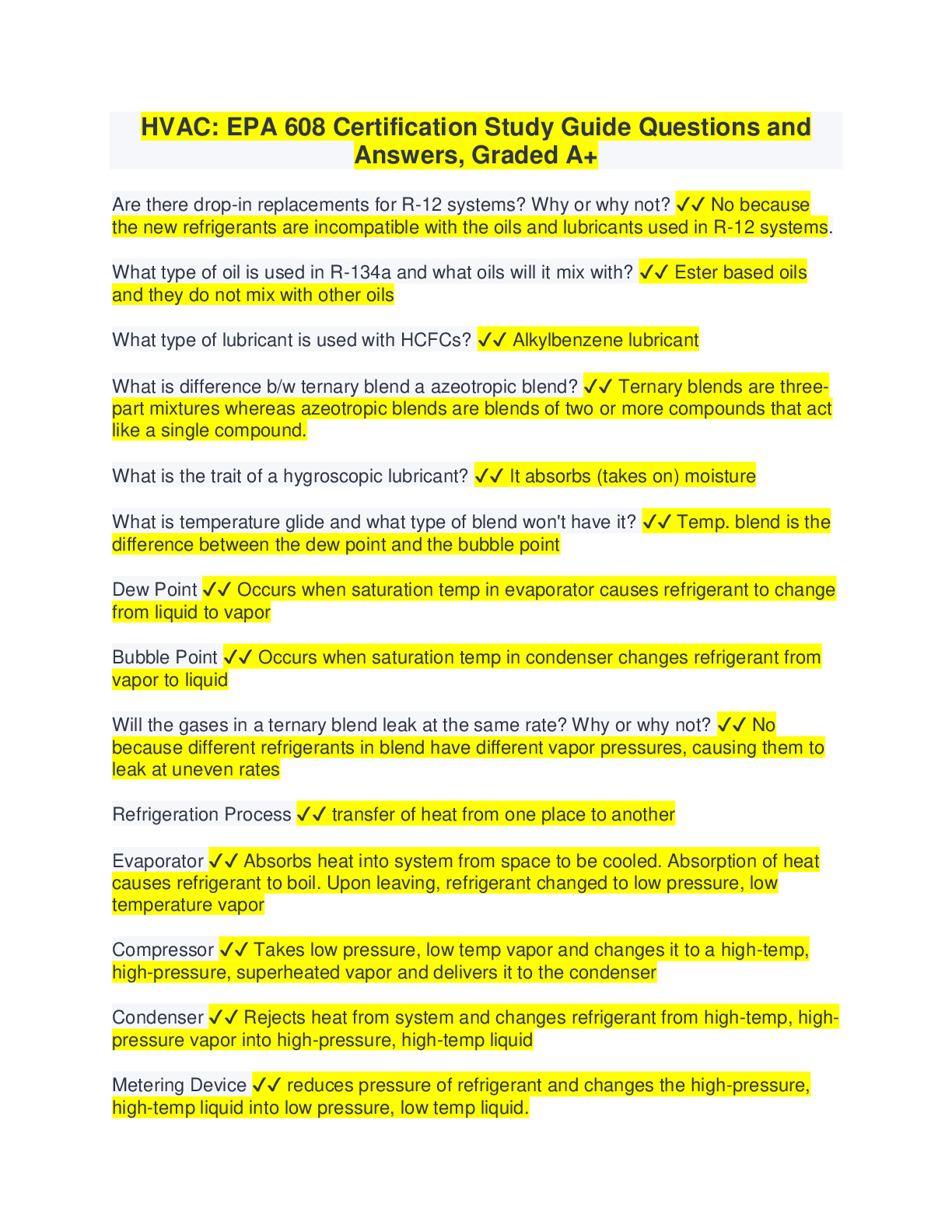
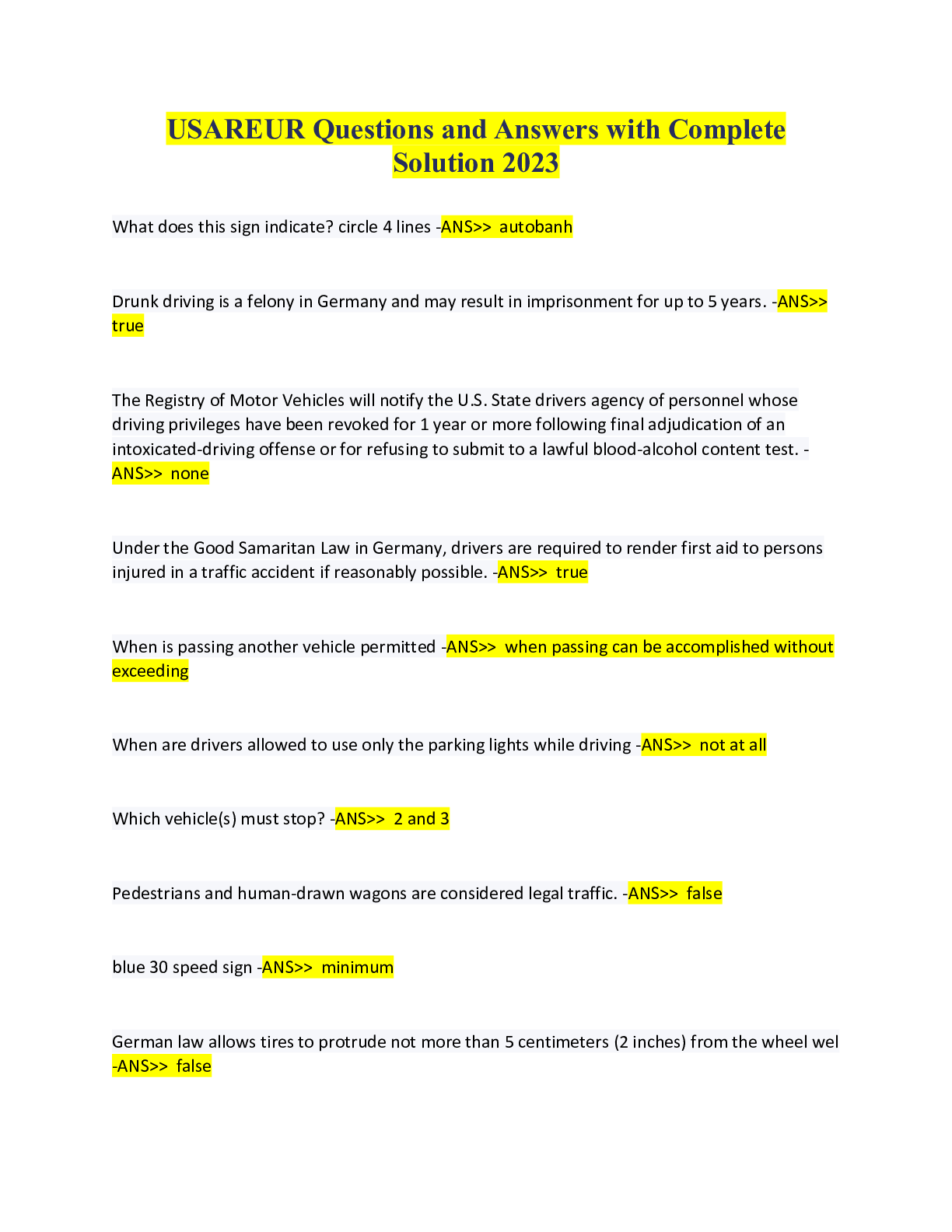

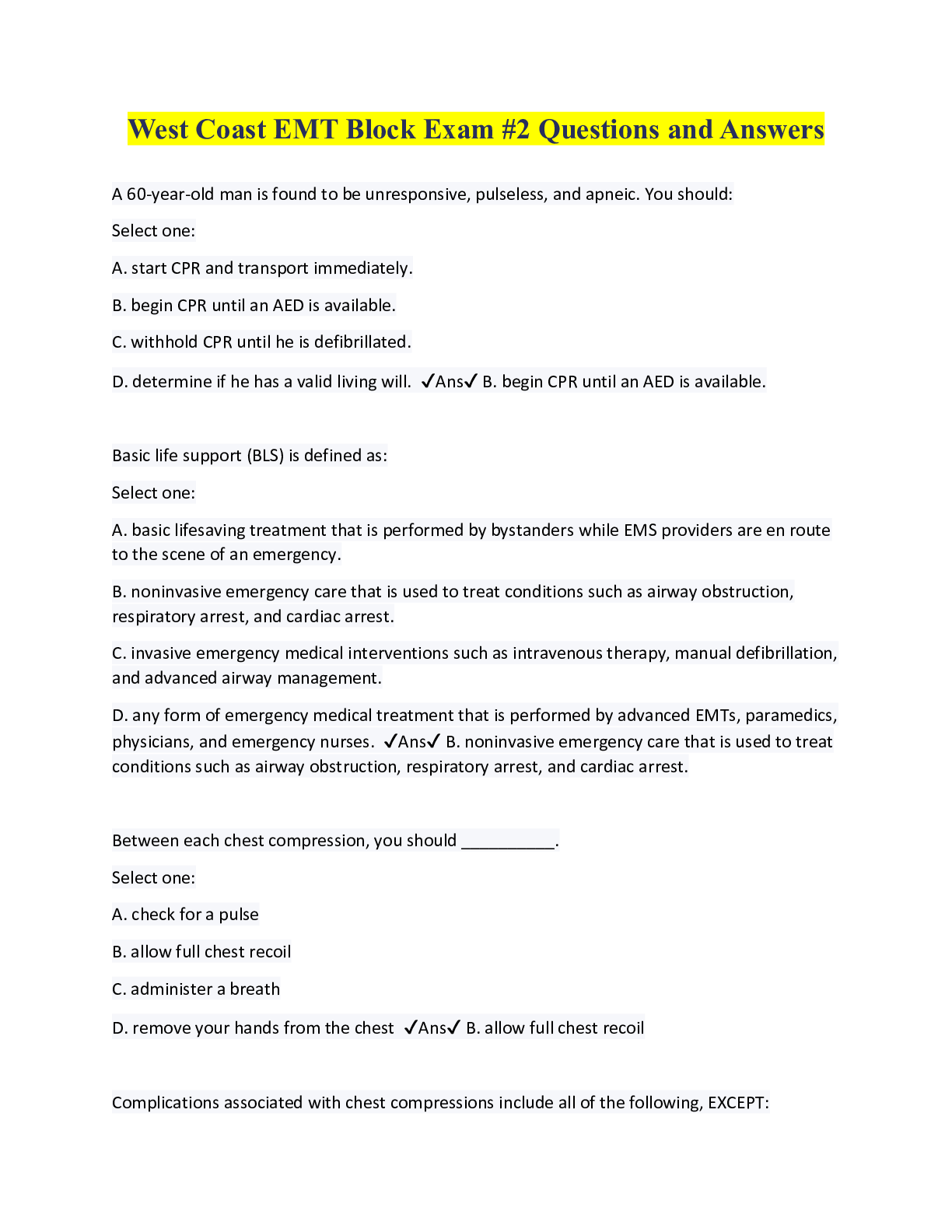
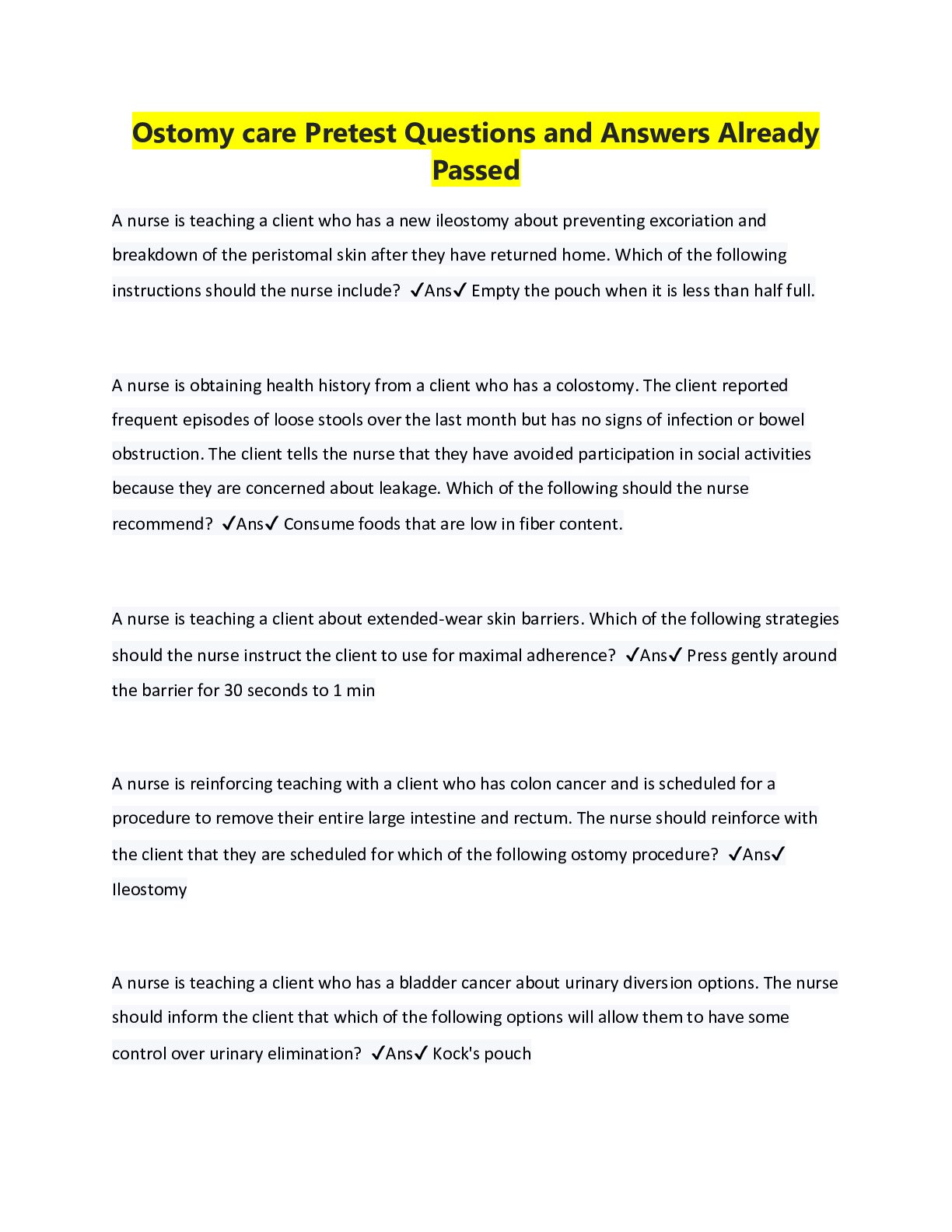
.png)
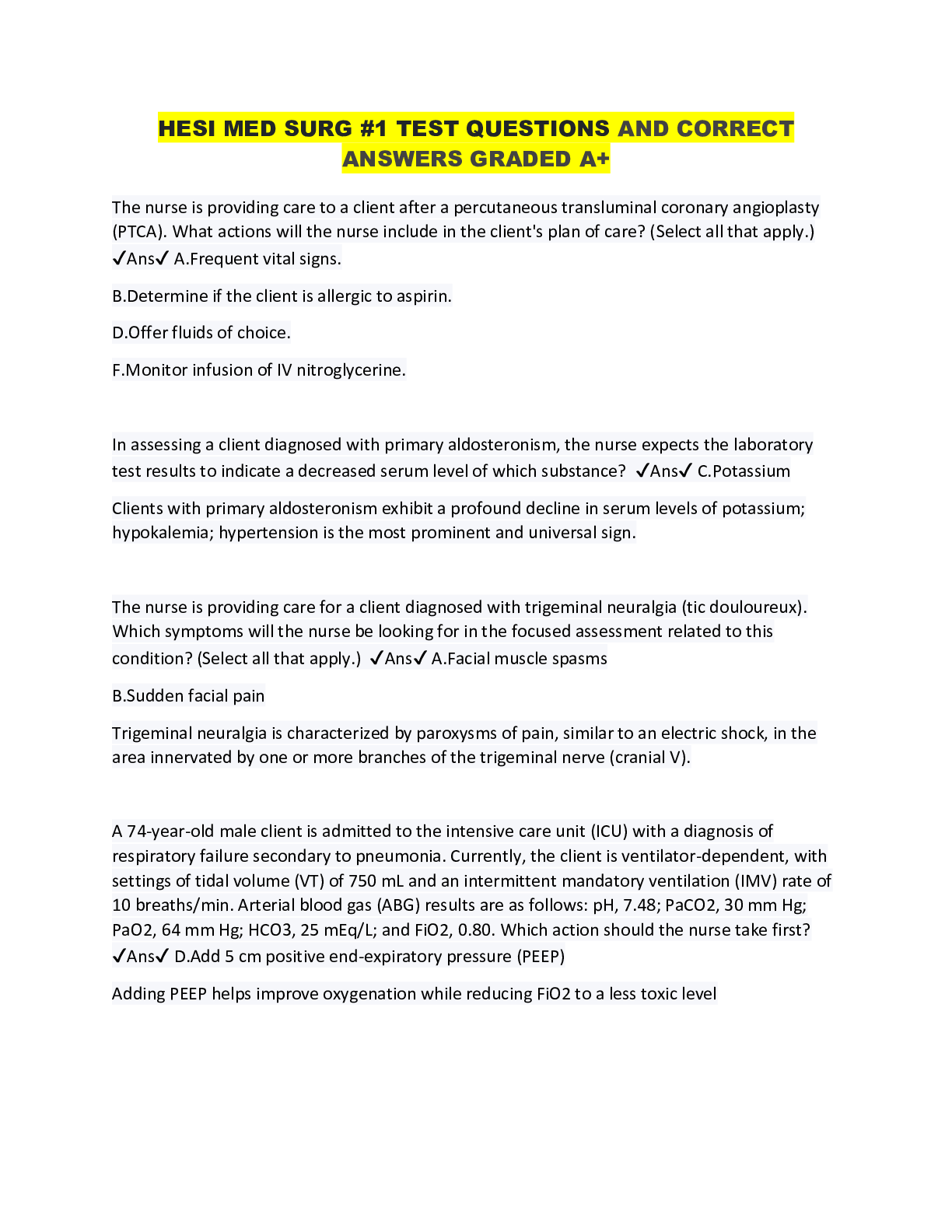
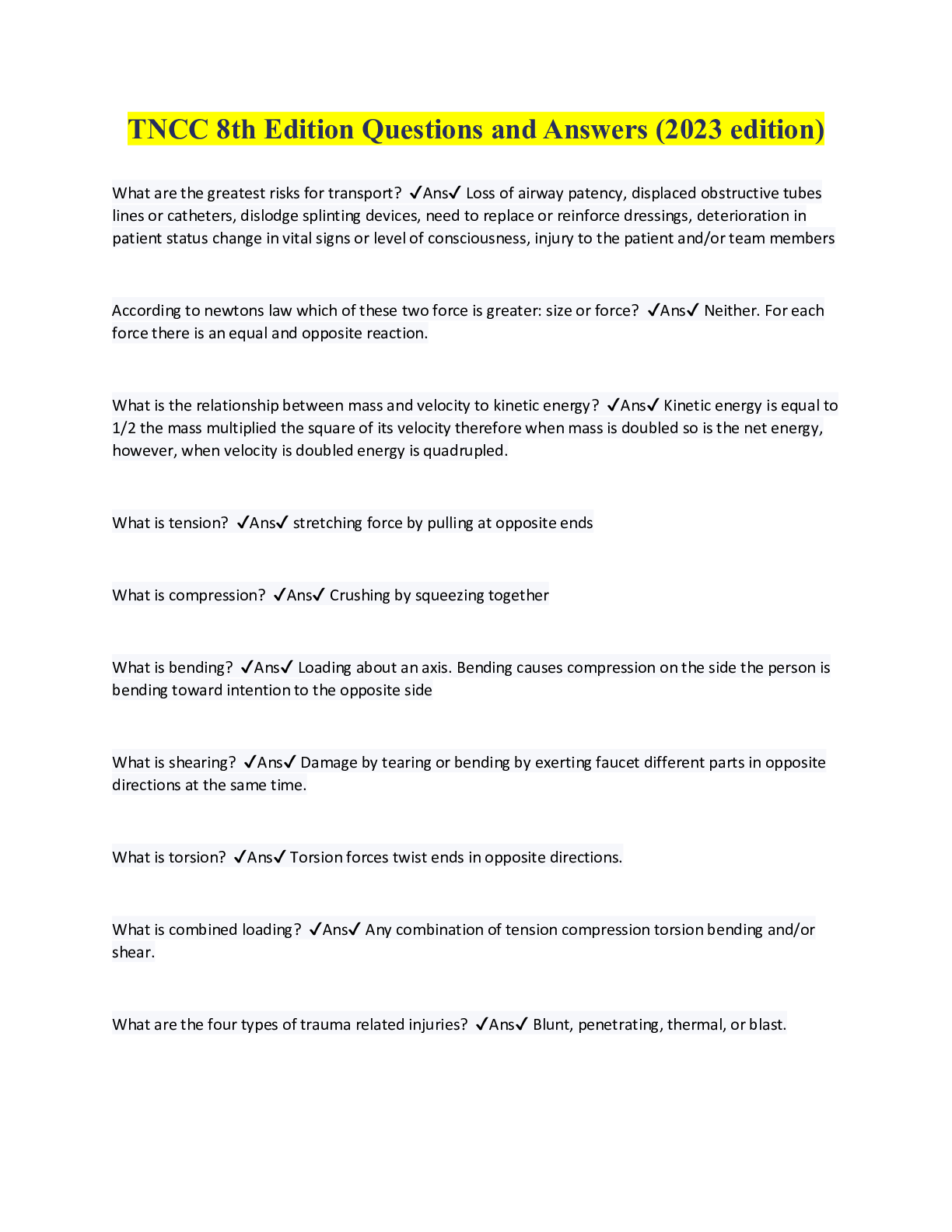
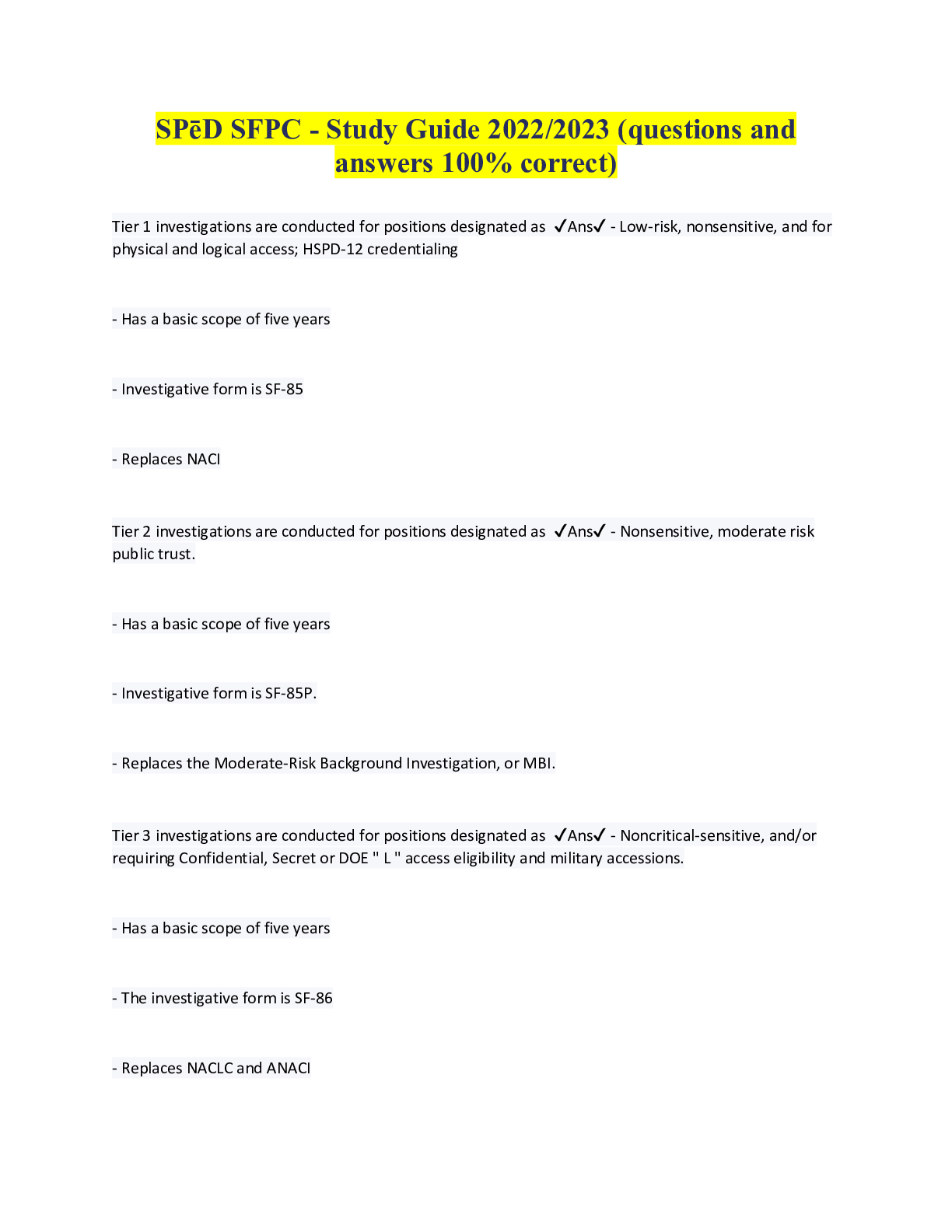
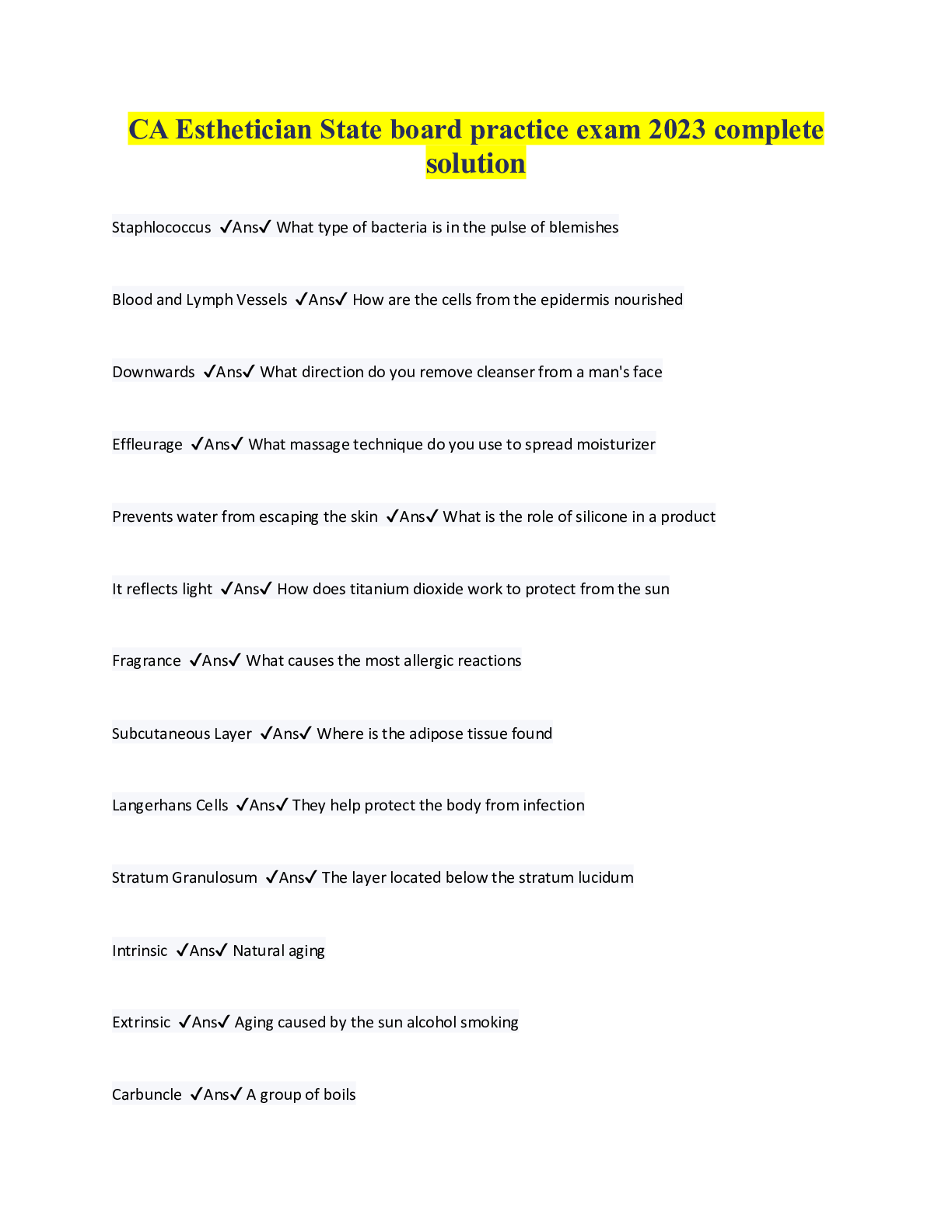
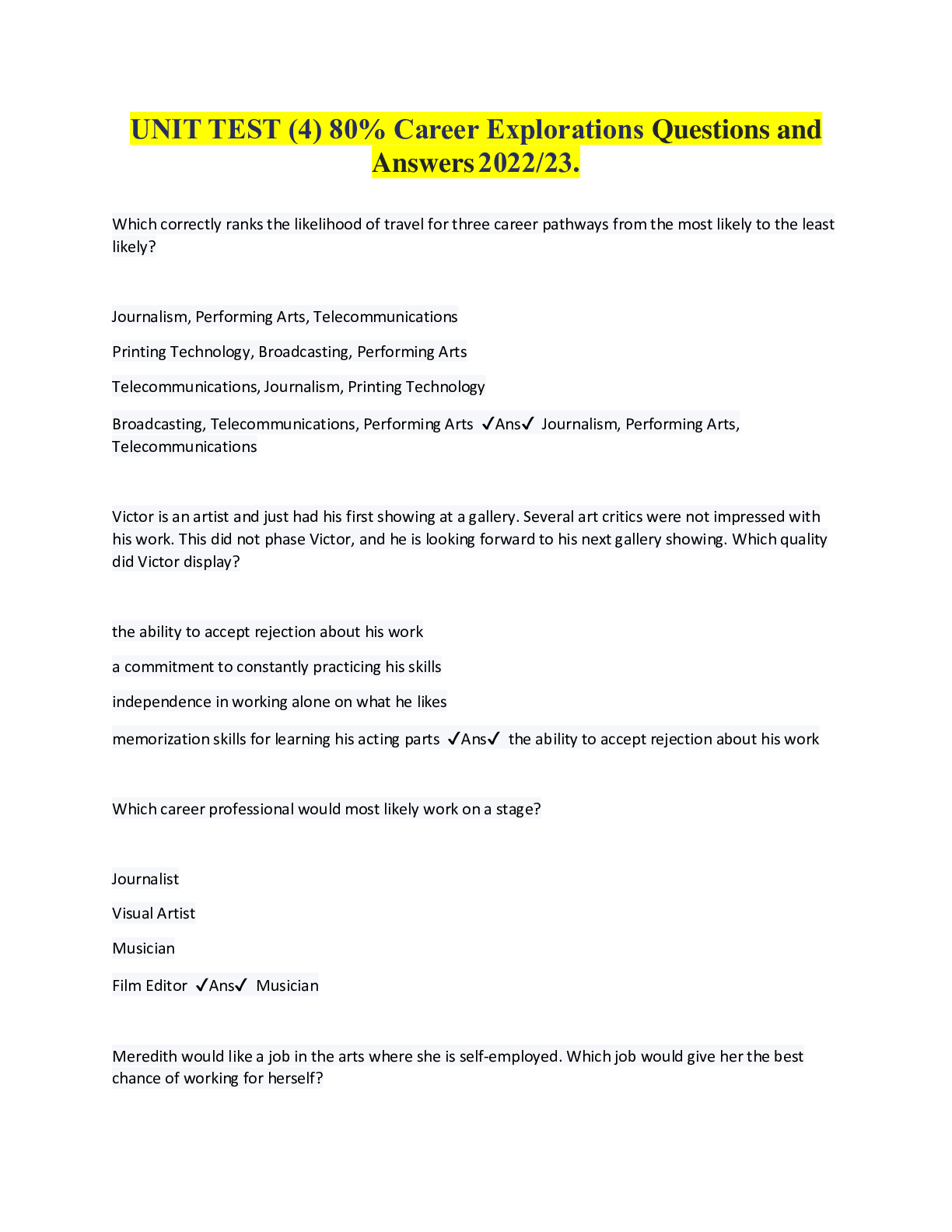
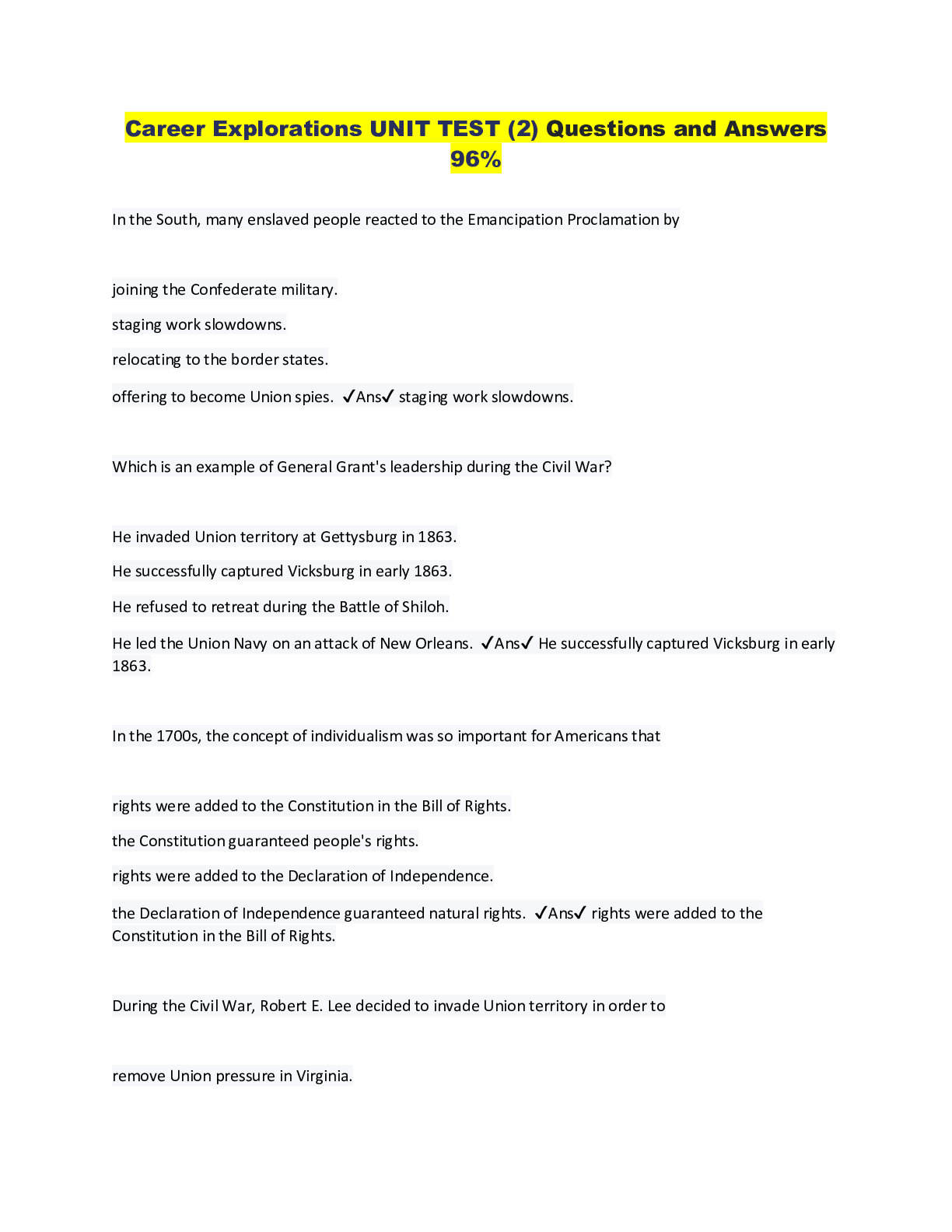
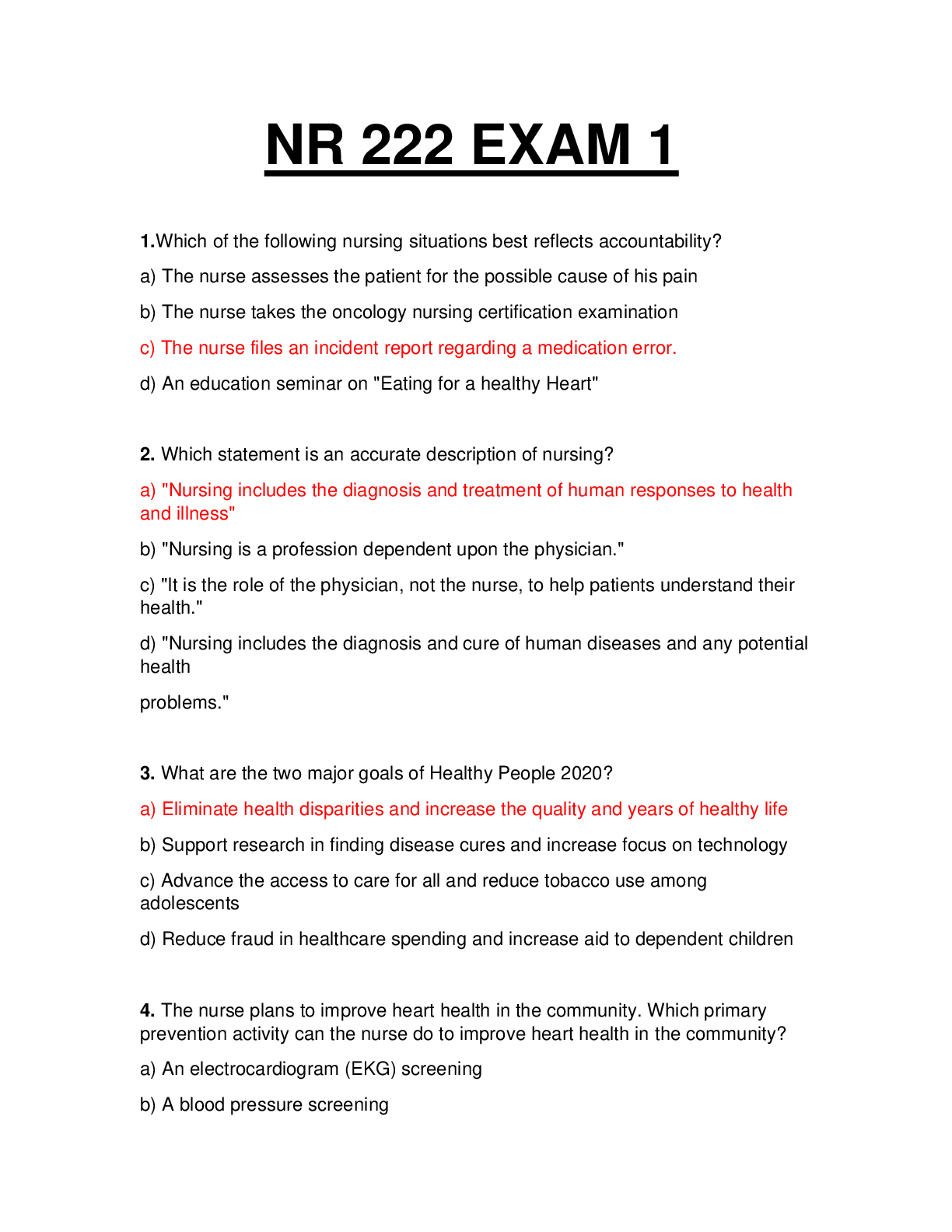


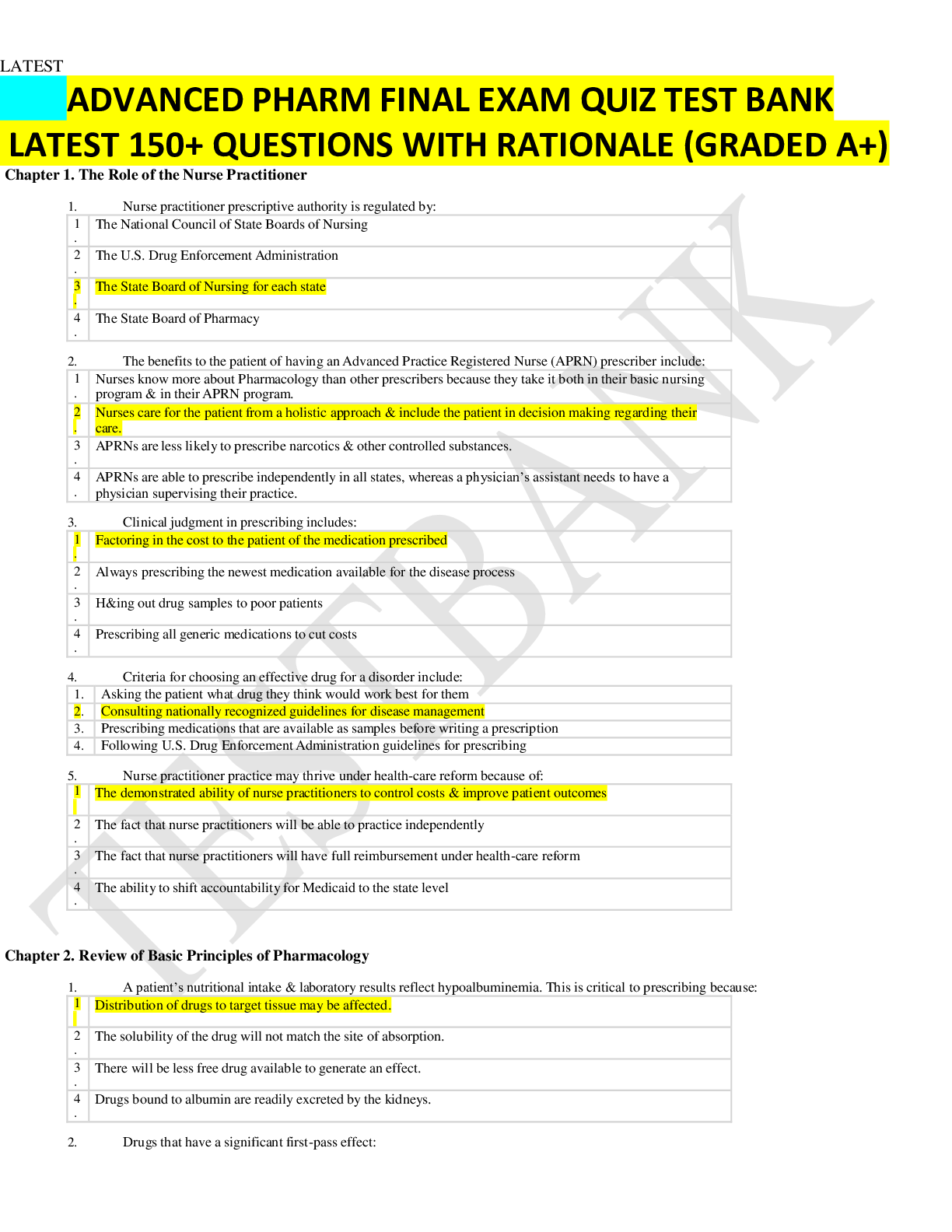
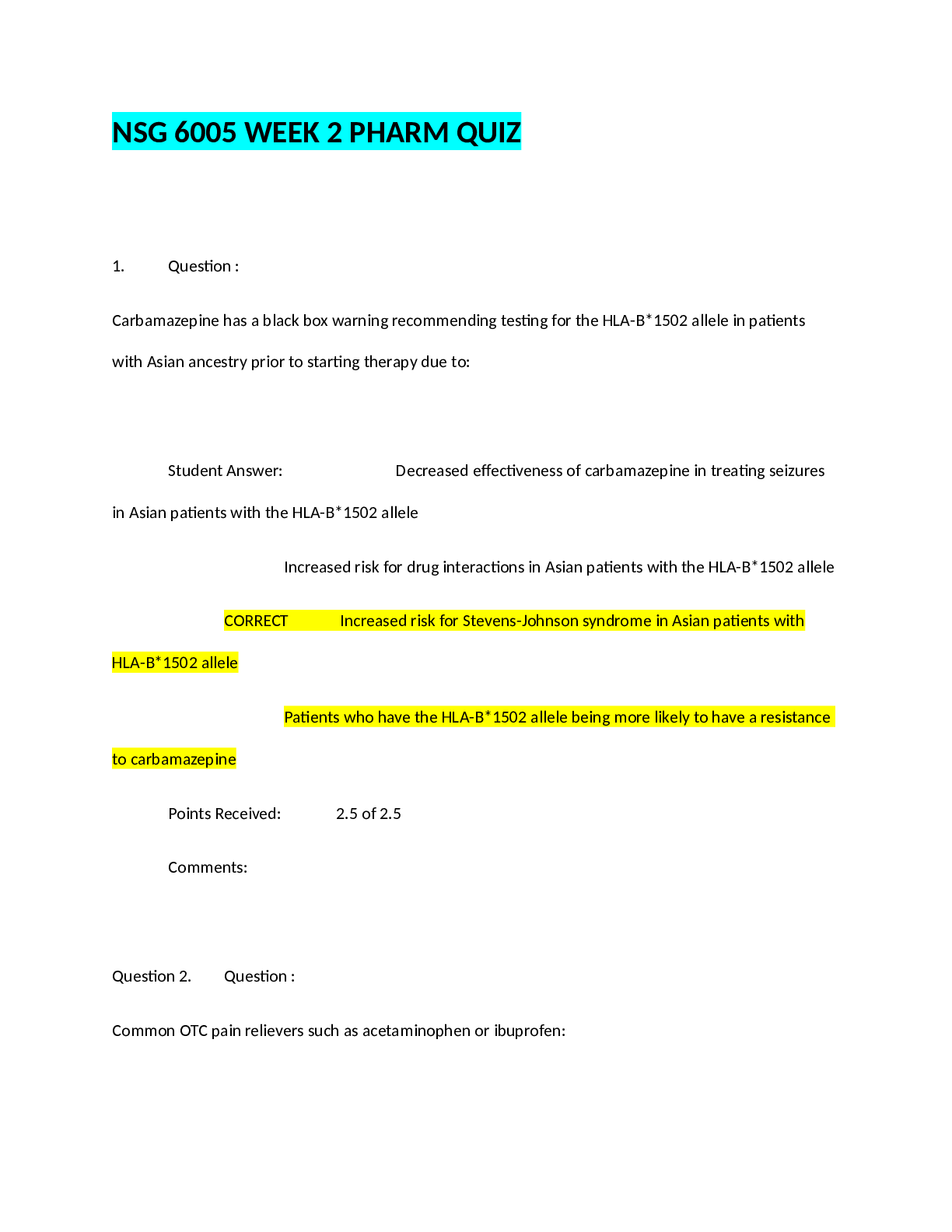
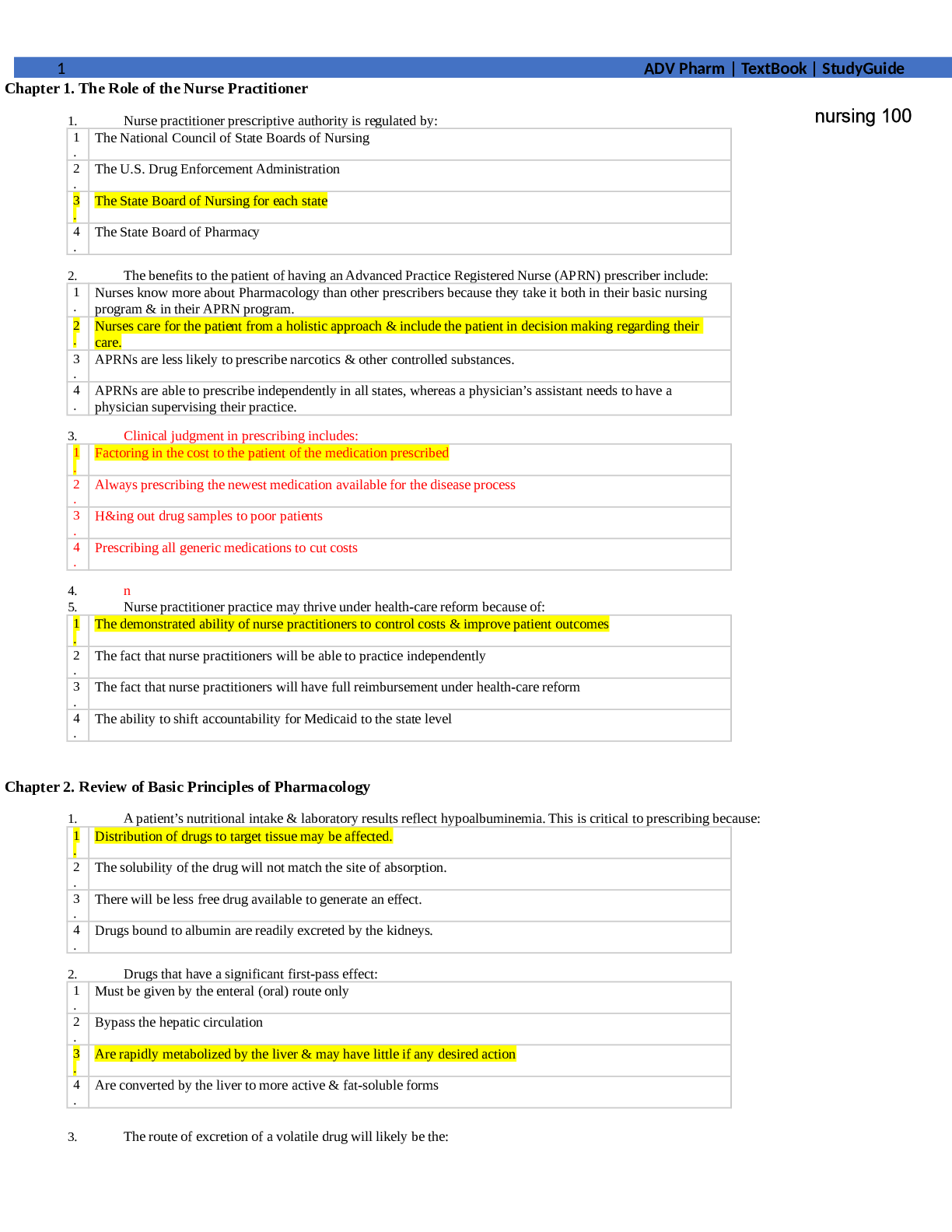
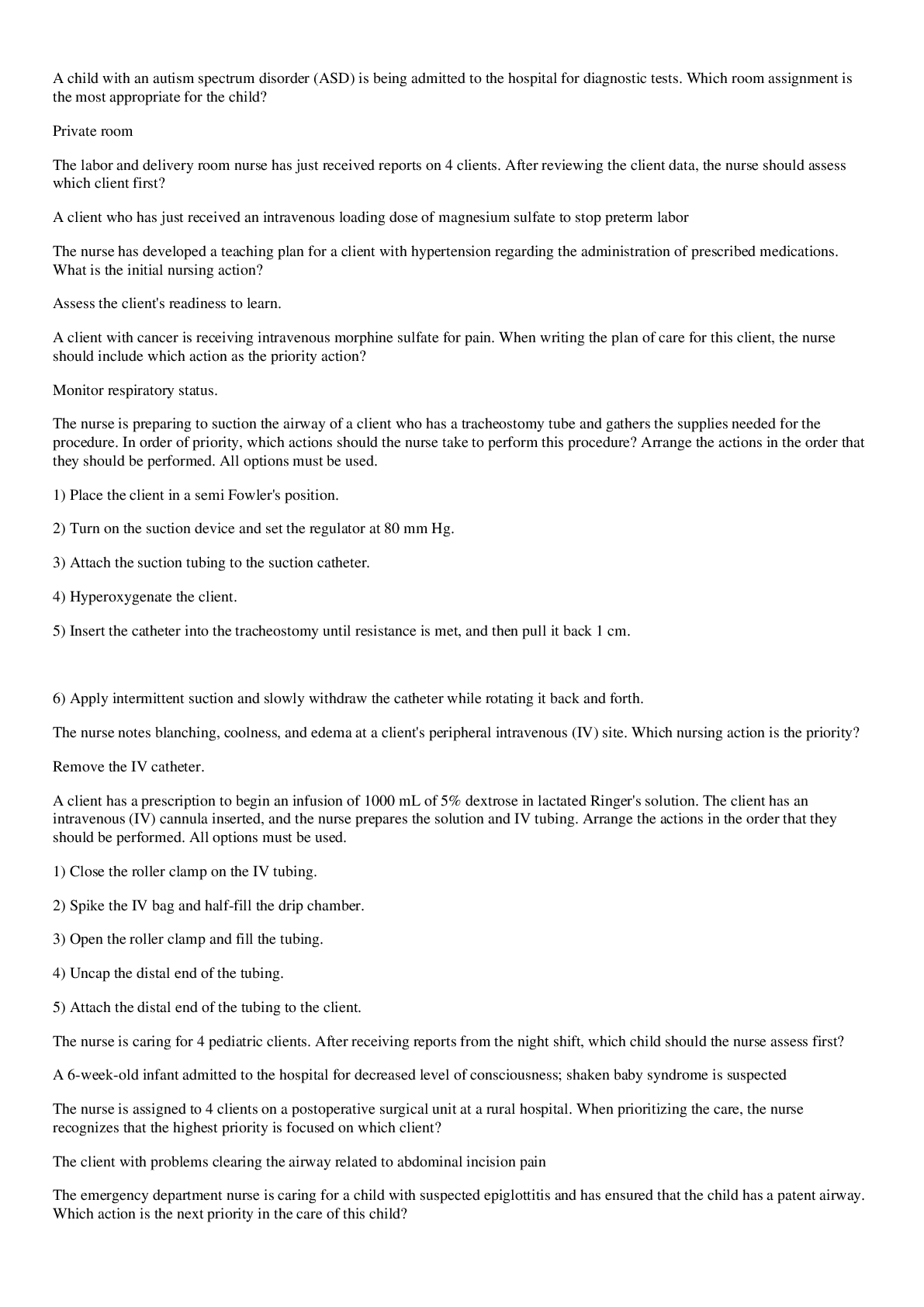
.png)
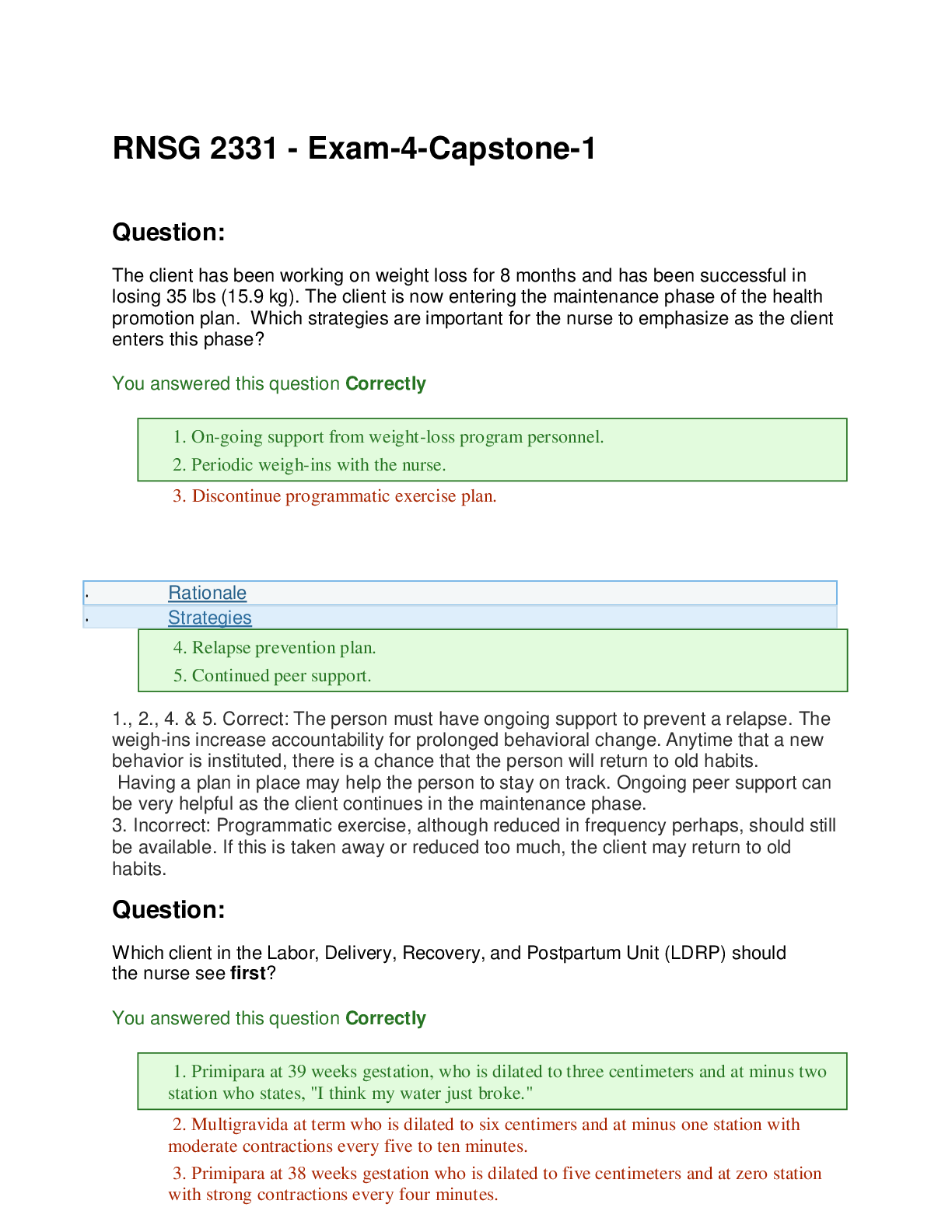
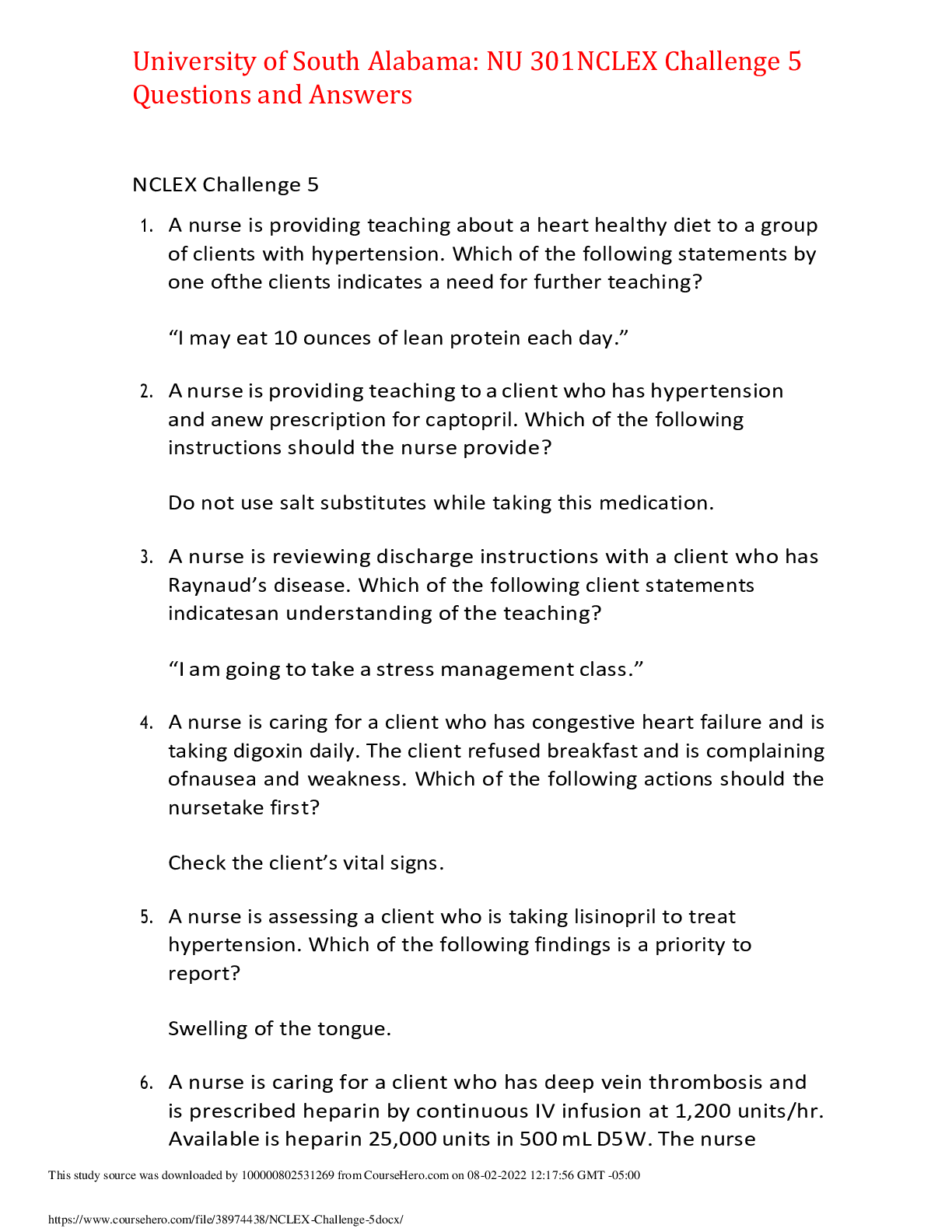
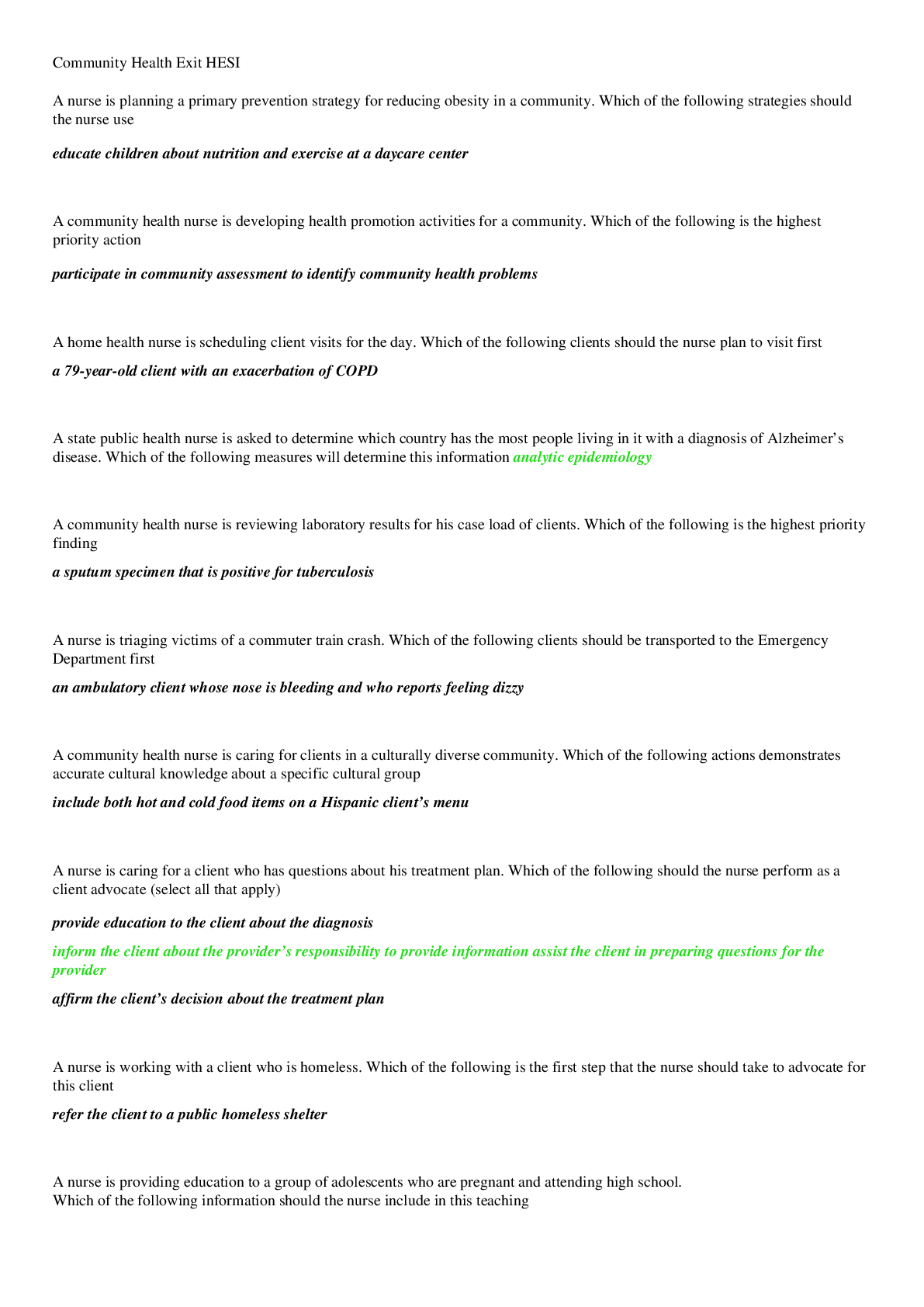
.png)

